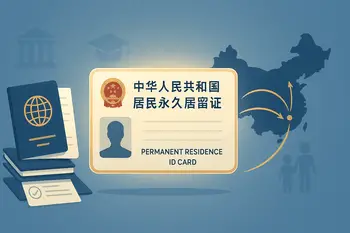
Meeting your Chinese colleagues for the first time is an exciting yet critical moment.
In Chinese business culture, first impressions carry immense weight, as they set the foundation for mutual respect, trust, and long-term collaboration.
Understanding the nuances of Chinese etiquette and cultural values can help you navigate these interactions with confidence and professionalism.
This guide provides practical advice, real-life examples, and insights into Chinese business culture to help you make a positive and lasting impression.
Understanding Chinese Business Culture
Chinese business culture is deeply rooted in traditions that emphasize respect, harmony, and relationships.
These values are influenced by Confucian philosophy, which prioritizes hierarchy, mutual respect, and the importance of maintaining “face” (mianzi, 面子).
By understanding these principles, you can demonstrate cultural sensitivity and foster stronger connections with your colleagues.
For a deeper dive into Confucianism and its influence on Chinese culture, visit the Stanford Encyclopedia of Philosophy.
Preparing for the Meeting
Research the Company and Individuals
Before your meeting, take the time to research the company’s history, mission, and key projects.
This demonstrates your dedication and helps you engage in meaningful conversations.
Additionally, familiarize yourself with the roles and responsibilities of the people you’ll meet.
For example, knowing who the decision-makers are can help you tailor your approach and avoid unintentional faux pas.
Understand the Importance of Hierarchy
Hierarchy is a cornerstone of Chinese business culture.
Seniority and titles carry significant weight, so always show deference to senior colleagues.
For instance, when entering a meeting room, allow senior members to take their seats first, and address them by their titles (e.g., “Director Wang” or “Manager Li”).
Familiarize Yourself with Business Etiquette
Politeness and humility are highly valued in Chinese culture.
Be prepared to show gratitude, maintain a reserved demeanor, and avoid overly casual behavior during formal interactions.
For more on Chinese business etiquette, see China Briefing’s Guide.
Greetings and Introductions
Use of Titles and Surnames
When addressing your colleagues, always use their title and surname unless they explicitly invite you to use their given name.
For example, say “Director Zhang” instead of “Mr. Zhang.” This shows respect and acknowledges their position within the organization.
Exchanging Business Cards
Business card exchanges are a formal ritual in Chinese business culture.
Offer and receive cards with both hands, and take a moment to study the card before putting it away.
This small gesture demonstrates respect and attentiveness.
Communication Etiquette
Avoiding Direct Criticism
In Chinese culture, maintaining “face” is crucial. Avoid blunt criticism, as it can embarrass your colleagues and damage relationships.
Instead, offer constructive feedback in a tactful and indirect manner.
Nonverbal Communication
Pay close attention to nonverbal cues, such as facial expressions and gestures, as they often convey subtle meanings.
For example, a slight nod may indicate agreement, while prolonged silence can signify thoughtfulness or hesitation.
Respecting Silence
Silence is not awkward in Chinese culture; it often reflects careful consideration or agreement.
Resist the urge to fill every pause, as doing so may come across as impatient or overly assertive.
Building Relationships: The Role of Guanxi
What is Guanxi?
Guanxi (关系) refers to the network of relationships built on mutual trust, reciprocity, and loyalty.
It is a cornerstone of Chinese business interactions and plays a significant role in decision-making and collaboration.
How to Build and Maintain Guanxi
Building guanxi requires time and genuine effort. Here are some practical tips:
- Invest in personal interactions, such as attending social gatherings or sharing meals.
- Follow through on commitments to demonstrate reliability.
- Show loyalty and respect in both professional and personal contexts.
For more on guanxi, see this Harvard Business Review article.
Business Meeting Etiquette
Punctuality
Arriving on time is a sign of respect. Being late can create a negative impression and may be seen as a lack of professionalism.
Following an Agenda
Chinese business meetings are typically structured with a clear agenda. Stick to the agenda to show respect for others’ time and avoid unnecessary deviations.
Decision-Making Process
Decision-making in Chinese organizations often involves group consensus, which can take time. Be patient and avoid pressuring for immediate answers, as this may be perceived as disrespectful.
Dining with Chinese Colleagues
Seating Arrangements
The seating order at a dining table reflects hierarchy. Wait for your host to indicate where you should sit to avoid taking a senior colleague’s place.
Toasting Rituals
Toasts are a common part of Chinese dining culture. Follow the lead of your host, and when toasting, hold your glass slightly lower than theirs as a sign of respect.
Table Manners
Be mindful of cultural taboos, such as:
- Avoid sticking chopsticks upright in rice, as it resembles a funeral ritual.
- Do not tap your bowl with chopsticks, as it is considered rude.
For more on Chinese dining etiquette, visit China Highlights.
Gift-Giving Practices
When to Give Gifts
Gift-giving is appropriate during holidays, after closing deals, or when visiting someone’s office for the first time. It is a gesture of goodwill and respect.
Choosing the Right Gift
Select practical or meaningful items, such as specialty foods or unique products from your home country.
Avoid gifts associated with bad luck, such as clocks (which symbolize death) or sharp objects (which signify severing relationships).
Navigating Challenges
Dealing with Misunderstandings
If a misunderstanding occurs, address it calmly and respectfully. Apologize if necessary, and seek clarification to resolve the issue without escalating tensions.
Adapting to Cultural Differences
Stay flexible and open-minded. Embrace cultural differences as opportunities to learn and grow, and avoid making assumptions based on your own cultural norms.
Virtual Meetings: A Modern Consideration
In today’s globalized world, virtual meetings are increasingly common. Here are some tips for navigating cultural norms in online settings:
- Use formal language and titles in emails and video calls.
- Be mindful of time zones and schedule meetings at mutually convenient times.
- Maintain professionalism in your appearance and background during video calls.
Conclusion
Meeting Chinese colleagues for the first time requires preparation, cultural sensitivity, and genuine effort to build relationships.
By understanding and respecting Chinese customs, you can make a lasting positive impression and lay the groundwork for successful collaboration.
For further reading, explore:


